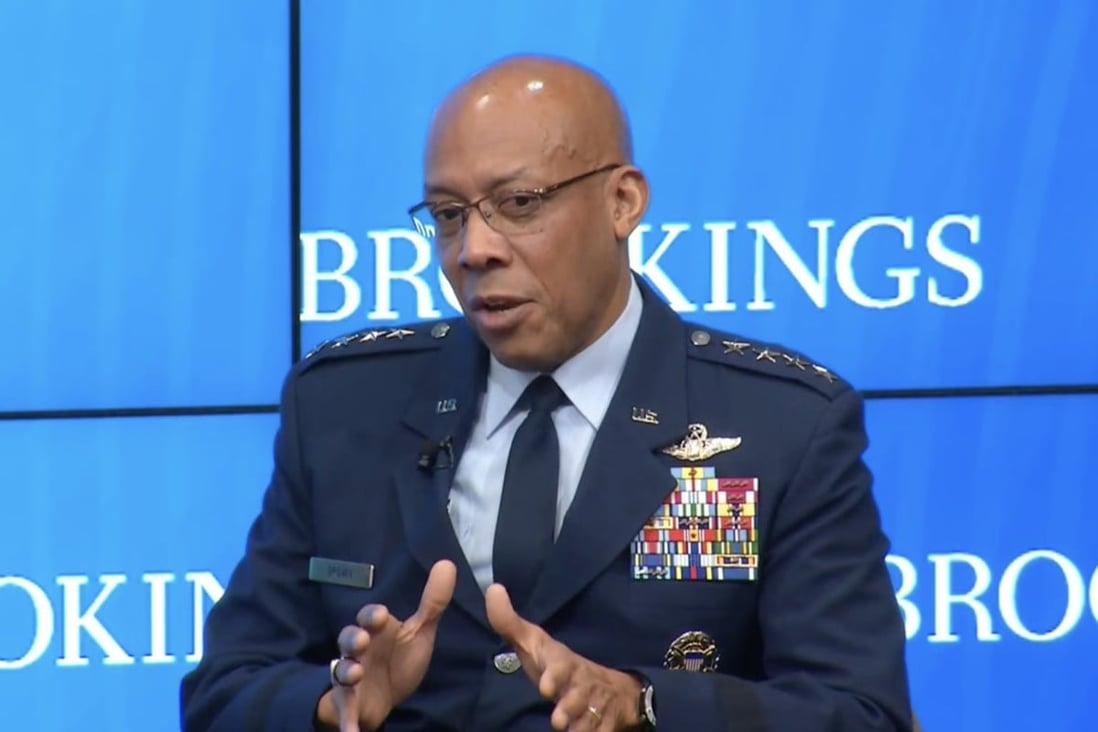Robert Delaney

A senior US Air Force official on Monday said a military attack on Taiwan by mainland China was not “imminent” and that predictions about such a scenario playing out were a distraction to the Pentagon’s efforts to be prepared for conflict in the region.
Asked whether he agreed with recent predictions of a military flare-up in the Taiwan Strait, General Charles Brown, the Air Force’s chief of staff, replied: “I don’t see that conflict is imminent or inevitable.”
“The goal is to avoid it, and so not knowing when things might occur, my goal is to be ready today, tomorrow, next week, next year, next decade,” Brown said at a discussion hosted by the Brookings Institution, a Washington think tank.
Speculation about when military conflict in the Taiwan Strait might break out “is not necessarily helpful”, he added.
“I’ve been disappointed by some of the comments that have been made [about conflict time frames] because it takes away from what we’re really trying to do, which is to make sure we’re going to be ready.”
Concern about Beijing’s plans for Taiwan, which it regards as a wayward province that must be reunited with the mainland, has intensified along with the People’s Liberation Army’s modernisation and larger presence in the East and South China seas in recent years.
Against this backdrop, Philip Davidson, then-head of the US Indo-Pacific Command, said in 2021 that Beijing’s military might try to unify Taiwan with mainland China “within the next six years” – an assessment now often referred to as “the Davidson time frame”.
More predictions have come out since US House Speaker Nancy Pelosi travelled to Taipei in August, a visit that prompted Beijing to start unprecedented military exercises that all but surrounded the island and sever some ongoing US-China dialogues.
That followed a warning in October by Admiral Michael Gilday, chief of US naval operations, that a mainland Chinese invasion of Taiwan could transpire within a year, based partly on comments made by Chinese President Xi Jinping at a major political conference in Beijing.
Asked how the US Navy should respond to Xi’s warning at the 20th party congress about Taiwan separatism, Gilday said at the time: “It’s not just what President Xi says, but it’s how the Chinese behave and what they do.”
“What we’ve seen over the past 20 years is that they have delivered on every promise they’ve made earlier than they said they were going to deliver on it,” the admiral said in a discussion hosted by the Atlantic Council.
Beijing views Taiwan as a breakaway province to be united with the mainland, by force if necessary. As is the case with many Western countries, the US does not recognise the island as an independent state. But Washington is committed by law to support Taiwan’s military defence capability – a stance Beijing strongly opposes.
No comments:
Post a Comment